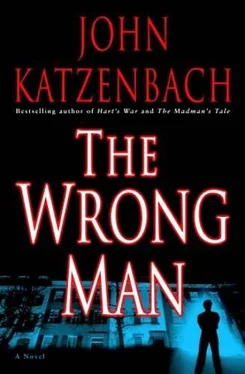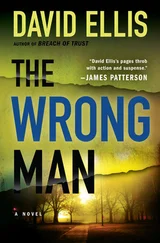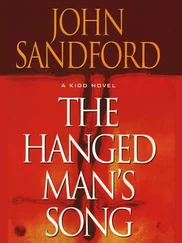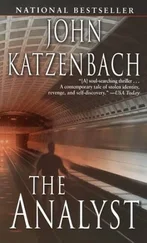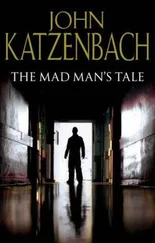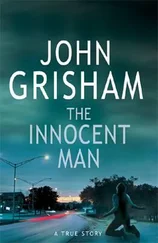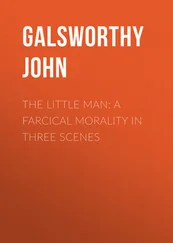“I do. I’m just saying that I know enough so that I could pursue all this on my own.”
“You could do that, but that would cause me to stop taking your calls. And perhaps you would never know what really happened. You might know some fact, or you might be able to piece together the details, so that you had the flesh of the story. But not the bones. Never the organs beneath the surface, telling you the why. Would you risk that?”
“No.” I said. “I would not.”
“I did not think so.”
“I will play by your rules. But not much longer. I’m reaching the end of my rope.”
“Yes. I can hear that in your voice.” But it did not sound as if this had the slightest impact on her. And with that, she hung up the phone.
The Pieces on the Board
Ashley was still angry, and sulking about being excluded from the most crucial decision she would ever have to make. Catherine was a little less stymied by Hope, Scott, and Sally’s unreasonable exclusions. She spent an hour on the telephone, dialing numbers, speaking in low tones, before collecting Ashley and saying, “There’s something you and I need to do.”
Ashley was standing in the kitchen with a cup of coffee, staring over at the corner where Nameless’s bowl-now empty-remained. No one had had the heart to move it. She felt knotted, tied to a mast while around her things were happening that she was intimately involved in, but she could not see.
“What?”
“Well,” Catherine said softly, “I don’t exactly like being on the outside looking in.”
“Neither do I.”
“I think we should take a few steps. Steps I’m not sure anyone in this family has ever considered before.” Catherine held up her car keys. “Let’s get going,” she said briskly.
“Where are we headed?”
“Going to meet a man,” Catherine replied breezily. “A most unsavory character, I suspect.”
Ashley must have looked slightly surprised, because the older woman smiled. “That is what we need. Someone distasteful.” She turned and, with Ashley in tow, headed out to her car. “We won’t be telling your parents or Hope about this trip,” she said as she pulled out onto the street. Ashley remained quiet as Catherine accelerated the car, checking the rearview mirror repeatedly, to make sure they were not being followed. “We need some help from someone from a different world. With different values. Luckily,” she sighed, “I know a few folks up near my home who knew someone who filled that particular bill.”
Ashley had several more questions but sat back, assuming she would find out what she needed to know soon enough. She lifted her eyebrows when Catherine steered the car out of the side streets onto a main boulevard, then turned toward the entrance ramp to the interstate, heading back in the direction they had fled from only a few days earlier.
“Where are we going?”
“A little spot just about forty-five minutes north of here,” Catherine said breezily. “Perhaps two hundred yards from the line separating the Commonwealth of Massachusetts from the great state of Vermont.”
“And what will we find there?”
Catherine smiled. “A man, like I said. The sort of man I doubt either of us has ever met before.” Her smile faded, and she spoke a little more harshly. “And perhaps some security.”
She did not explain this, nor did Ashley ask her to, although the younger woman doubted security was so easily found, even just over the border in Vermont.
Scott left the town library hurriedly.
What he had heard was an unsettling story-a small-town-America story that mixed rumor, innuendo, jealousy, and exaggeration together with some truths, some facts, and some possibilities. Stories such as the one he’d just heard have a certain radioactivity. They may not be clear to the naked eye, but they generate infectious power.
“The thing you need to know,” the librarian had told him, “was just how messy the death of Michael O’Connell’s mother truly was.”
Messy, in Scott’s mind, hardly captured the situation.
Some relationships are volatile from the start and should never form, but for some curious and hellish reason, take root and create a deadly ballet. That was the home life that Michael O’Connell was born into: a father who was abusive, more often than not drunk, who maintained a household riveted together by bolts of anger; and a mother who had once been a high school valedictorian, who had tossed away her promise on the man who’d seduced her in her first year at community college. His Elvis good looks, dark hair, muscled body, good job in the shipyards, fast car, and ready laugh had all hidden his harsher side.
The police visits at the O’Connell household had been a regular Saturday-night event. A broken arm, teeth knocked out, bruises, social workers, trips to the emergency room, had been her wedding gifts. In turn he’d received a broken nose that spoiled his handsome face when it was set improperly and more than once had to stare down his wife when she waved a kitchen knife in his direction. It was a steady and all-too-familiar pattern of abuse, violence, and forgiveness that would have continued forever, except for two events: the father fell, and the mother grew sick.
The senior O’Connell slipped from a work spot thirty feet in the air, slamming into a steel girder when he tumbled. He should have died, but instead spent six months in the hospital, recovering from a pair of fractured vertebrae, managing to gain an addiction to painkillers and a substantial insurance and disability settlement, the majority of which he wasted buying rounds of drinks at the local VFW hall and falling prey to a couple of get-rich-quick schemers. Meanwhile, O’Connell’s mother had a bout with uterine cancer. Surgery and her own dependence upon painkillers led to a life filled with greater uncertainty.
O’Connell was thirteen on the night his mother died. One day past his birthday.
What Scott had learned from the librarian and a quick search of the local newspaper’s files was both troubling and confusing. Both parents had been drinking and fighting; it had been going on for some time, according to some neighbors, but it was not all that unusual and was not a 911 level of violence. But in the early evening, just after dark, there had been a sudden eruption of loud noises, followed by two gunshots.
The gunshots were the questionable part of the story. Some of the neighbors distinctly remembered a significant space of time-thirty seconds, perhaps as much as a minute or a minute and a half-between the shots.
O’Connell’s father himself had called the police.
They arrived to find the mother dead on the floor, a close-contact gunshot wound to her chest, a second bullet in the ceiling, the barely teenage boy huddled in the corner, and the father, face covered with red scratch marks, holding a snub-nosed.38 pistol in his hand. This was the senior O’Connell’s story: They’d been drinking and then they’d fought, as usual, only this time she had pulled out the revolver that he kept locked in his bureau drawer. He didn’t know how she’d managed to find the key. She threatened to kill him. Said he’d punched her once too often, and that he should get ready to die. Instead he’d charged across the kitchen like an enraged bull, screaming at her, daring her to fire. He’d seized her hand. They’d grappled. The first discharge went into the roof. The second went into her chest.
A fight. Too much alcohol. An accident.
That was his story, or so the librarian told Scott, shaking her head as she did.
Of course, Scott understood, the police immediately wondered whether it had been O’Connell’s father who had brandished the weapon, and the mother who had been the one fighting for her life. More than one detective looked at the crime-scene photos and thought it was just as likely that she’d refused his drunken advances and had grabbed the gun barrel in a fatal attempt to prevent him from shooting her. The shot in the ceiling was an afterthought, conveniently provided to make his version of events seem truthful.
Читать дальше
